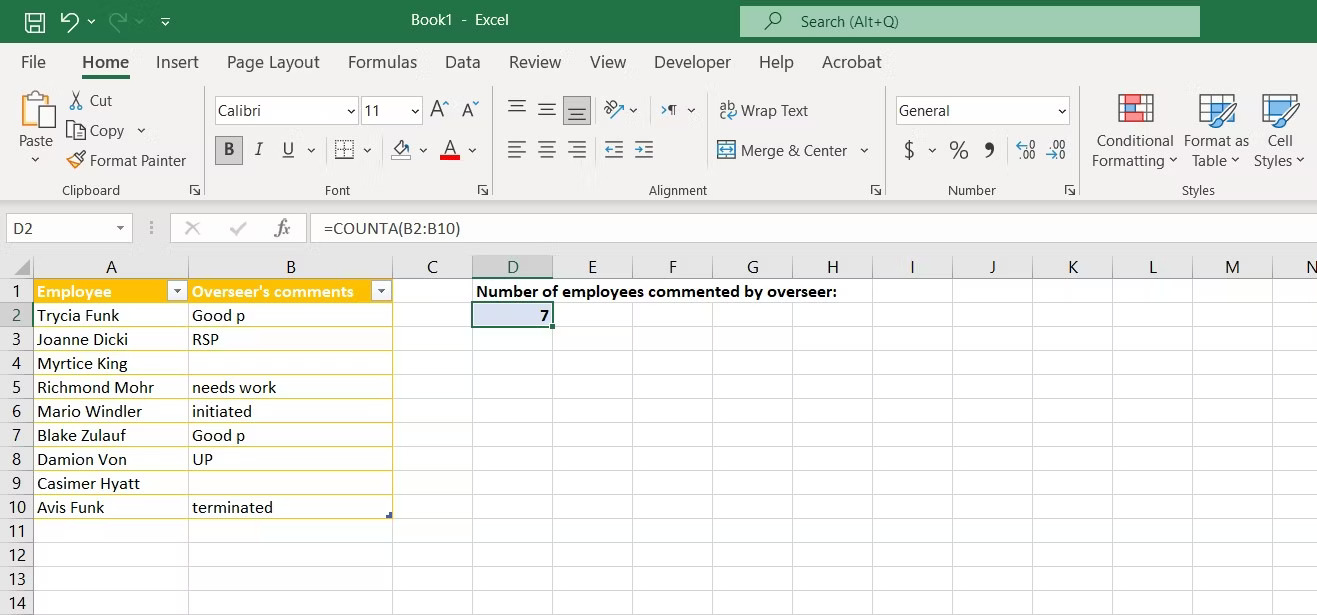
Count NonEmpty Cells Excel Count NonBlank Cells in Excel Earn & Excel
To count non-blank cells by category, you can use the COUNTIFS function. In the example shown, the formula in G5 is: =COUNTIFS (data [Group],F5,data [Done],"") where data is an Excel Table in the range B5:D16. As the formula is copied down, it returns a count of non-blank dates by Group as seen in the worksheet.
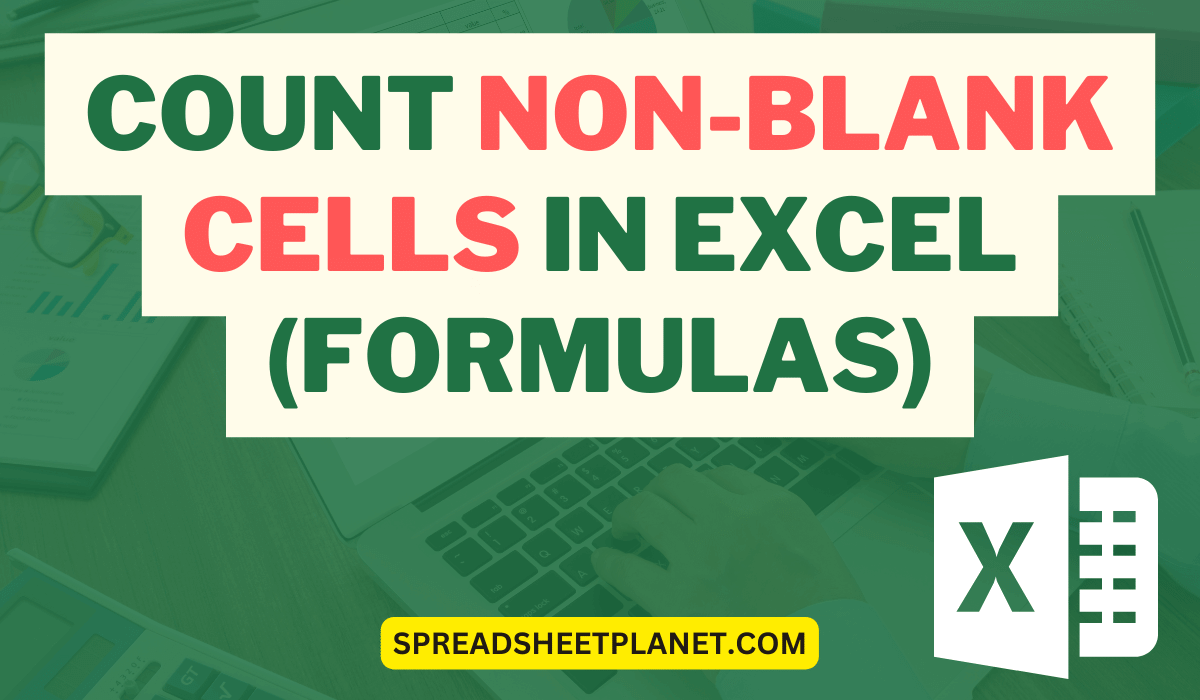
Count Cells that are Not Blank in Excel (7 Easy Formulas)
To count cells that are not blank, you can use the COUNTA function. In the example shown, F6 contains this formula: = COUNTA (C5:C16) The result is 9, since nine cells in the range C5:C16 contain values. Generic formula = COUNTA ( range) Explanation In this example, the goal is to count cells in a range that are not blank (i.e. not empty).
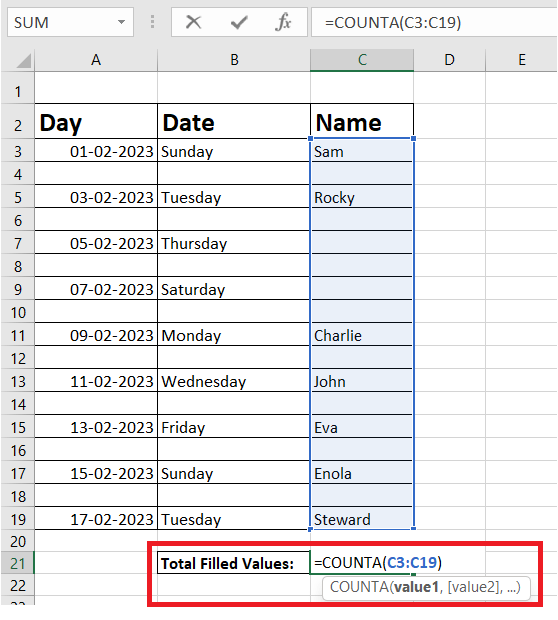
How to count nonempty cells in Excel javatpoint
To count all the non-blank cells with COUNTIF we can make use of the following formula: =COUNTIF(range,"<>") Let's try to understand this with an example. So, we have a dataset as shown below: From this list of product discounts, we will aim to find how many products are discounted.

How to use COUNTBLANK Funtion to Count Blank Cells in Excel
Please keep in mind that if the cell has a value of 0, it will pick it up as non-blank. Count Blank and Non-Blank Cells in Google Sheets. The formulas work in exactly the same way in Google Sheets. To demonstrate, see the examples below. Count Non-Blank Cells in Google Sheets. or. Count Blank Cells in Google Sheets

How to Count nonblank Cells in Excel YouTube
1. The COUNTBLANK function below counts the number of blank cells in the range A1:A7. 2. The COUNTA function below counts the number of nonblank cells in the range A1:A7. COUNTA stands for count all. 3. The COUNTIFS function below counts the number of blank cells in the range B1:B7 with one additional criteria (blue).
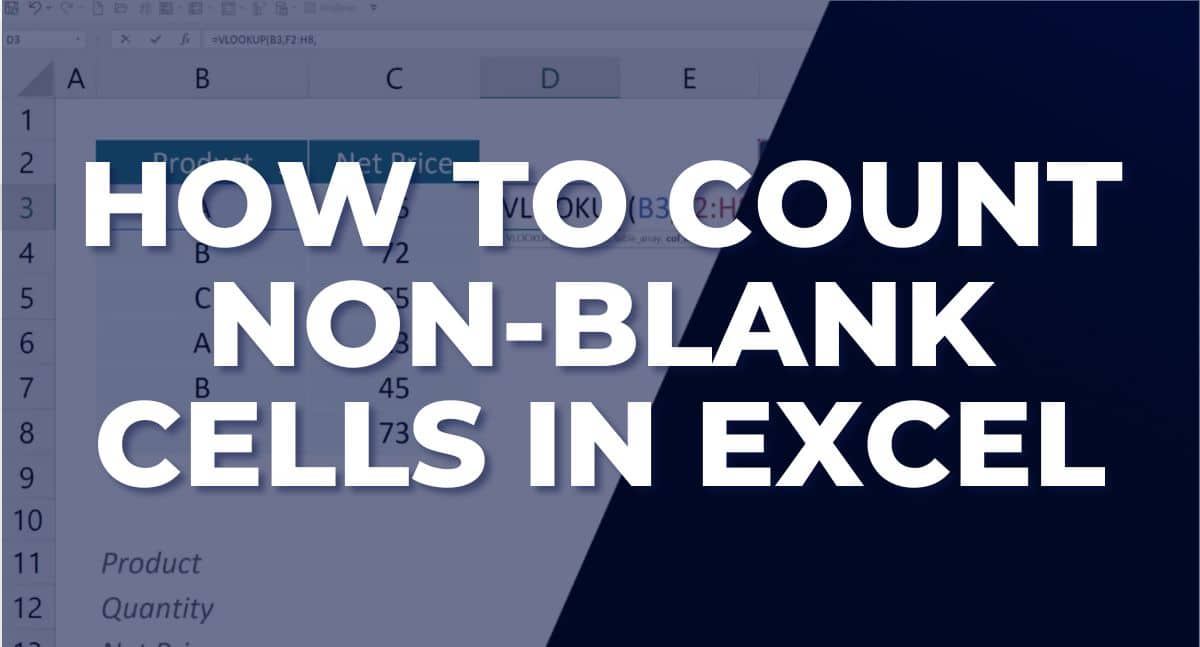
5 Ways How to Count NonBlank Cells in Excel StepbyStep
This article describes the formula syntax and usage of the COUNTA function in Microsoft Excel. Description. The COUNTA function counts the number of cells that are not empty in a range. Syntax. COUNTA(value1, [value2],.) The COUNTA function syntax has the following arguments: value1 Required. The first argument representing the values that.
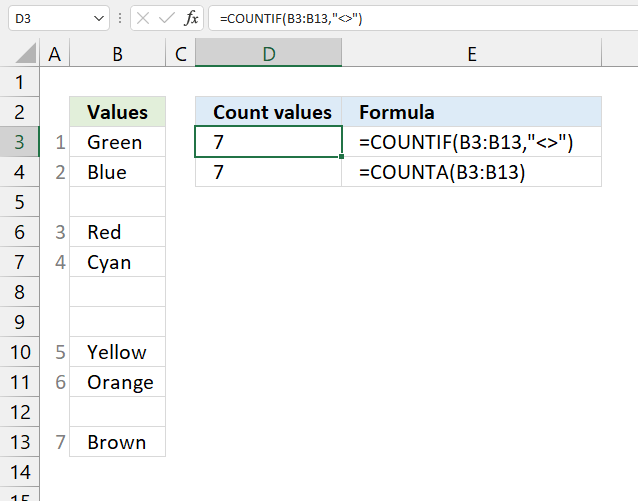
Count excel if cell not empty
Using Excel Find and Replace functionality Find and Replace is very handy tool to count Non Blank cells. It is very helpful in large data sets. It's not only shows count of Non Empty cells but also gives you cells' references. It's also have option to count only values or values and formulas both.
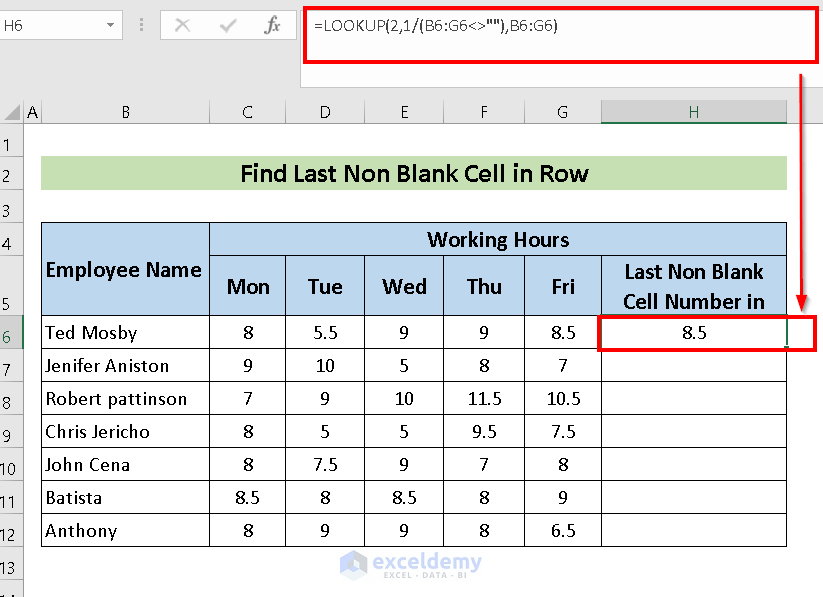
How to Find Last Non Blank Cell in Row in Excel (5 Methods) ExcelDemy
=COUNTA (B2:B6) You can also count the cells in more than one range. This example counts cells in B2 through D6, and in B9 through D13. You can see Excel highlights the cells ranges, and when you press Enter, the result appears: If you know you don't need to count text data, just numbers and dates, use the COUNT function.
Counting NonBlank Cells In Excel Pixelated Works
Counting non-empty cells in Excel is an essential feature for manipulating data. Here is a straightforward 5-step guide to assist you in counting non-empty cells in Excel. Firstly, highlight the cells you want to count. Secondly, navigate to the Home tab on the top bar, locate the Editing group, and then select Find & Select..

How to Count Blank and Non Blank cells in Excel YouTube
To count cells that are not blank, in Excel, you can use the COUNTIF or COUNTIFS function depending on the data that you have in your worksheet. You need to specify the range and then the not equal operator with a blank value to get the count of the cells which are non-blank (empty). In this tutorial, we will look at both different ways to do this.

How to Count Non Blank Cells with Condition in Excel (6 Methods)
Microsoft security Accessibility center Use the COUNTA function to count only cells in a range that contain values. When you count cells, sometimes you want to ignore any blank cells because only cells with values are meaningful to you.

How to Count Blank and Non Blank Cells in Excel using Count Formula MI Tutorials YouTube
Counting non-blank cells. In the same example, we want ot count the items that are not blank. To do this, we will use the COUNTA function. Here's a step-by-step guide in using the COUNTA function: Select the cell you want to count the cells in. On the cell, type in "=COUNTA" followed by an open parenthesis.

How to use COUNTBLANK Funtion to Count Blank Cells in Excel
Excel COUNTIF for blank and non-blank cells. These formula examples demonstrate how you can use the COUNTIF function in Excel to count the number of empty or non-empty cells in a specified range. COUNTIF not blank. In some Excel COUNTIF tutorials and other online resources, you may come across formulas for counting non-blank cells in.

Count Cells That Are Not Blank in Excel (6 Useful Methods) ExcelDemy
The most common method to count non-blank cells in Excel is to use the COUNTA function with the range of cells to be evaluated. Other methods include the COUNTIF function and the Find-And-Replace tool. This article shows you how to count non-blank cells in Excel with five methods: the COUNTA function combining SUM and COUNTA COUNTBLANK COUNTIF

Count Blank or Non Blank Cells in Excel How to use COUNTBLANK, COUNTA, COUNTIF function? YouTube
Steps: First, select cell D15 to count those cells whose value is greater than 80. Now, type the COUNTIF function in the Formula Bar. The COUNTIF function is, =COUNTIF (B6:E13, ">80") Where B6:E13 is the cell reference and >80 is the criteria which means the cell's value is greater than 80.
Counting NonBlank Cells In Excel Pixelated Works
The COUNTA function in Excel can count cells with certain criteria like containing logical values, texts, numbers, etc. Let us see how to use this function to count only cells that are not blank. Steps: First, go to cell D10 and insert the following formula: =COUNTA (B4:D9)